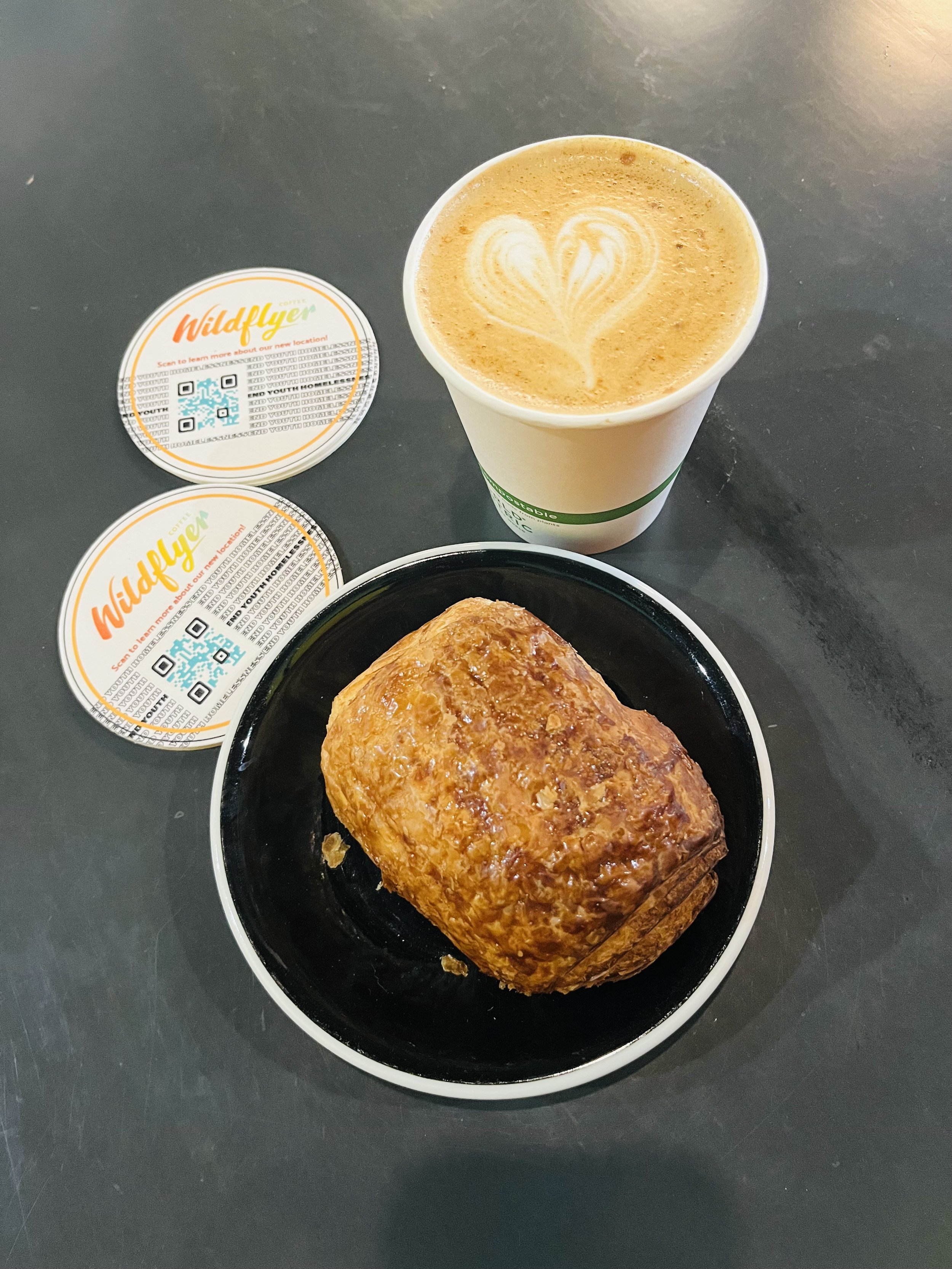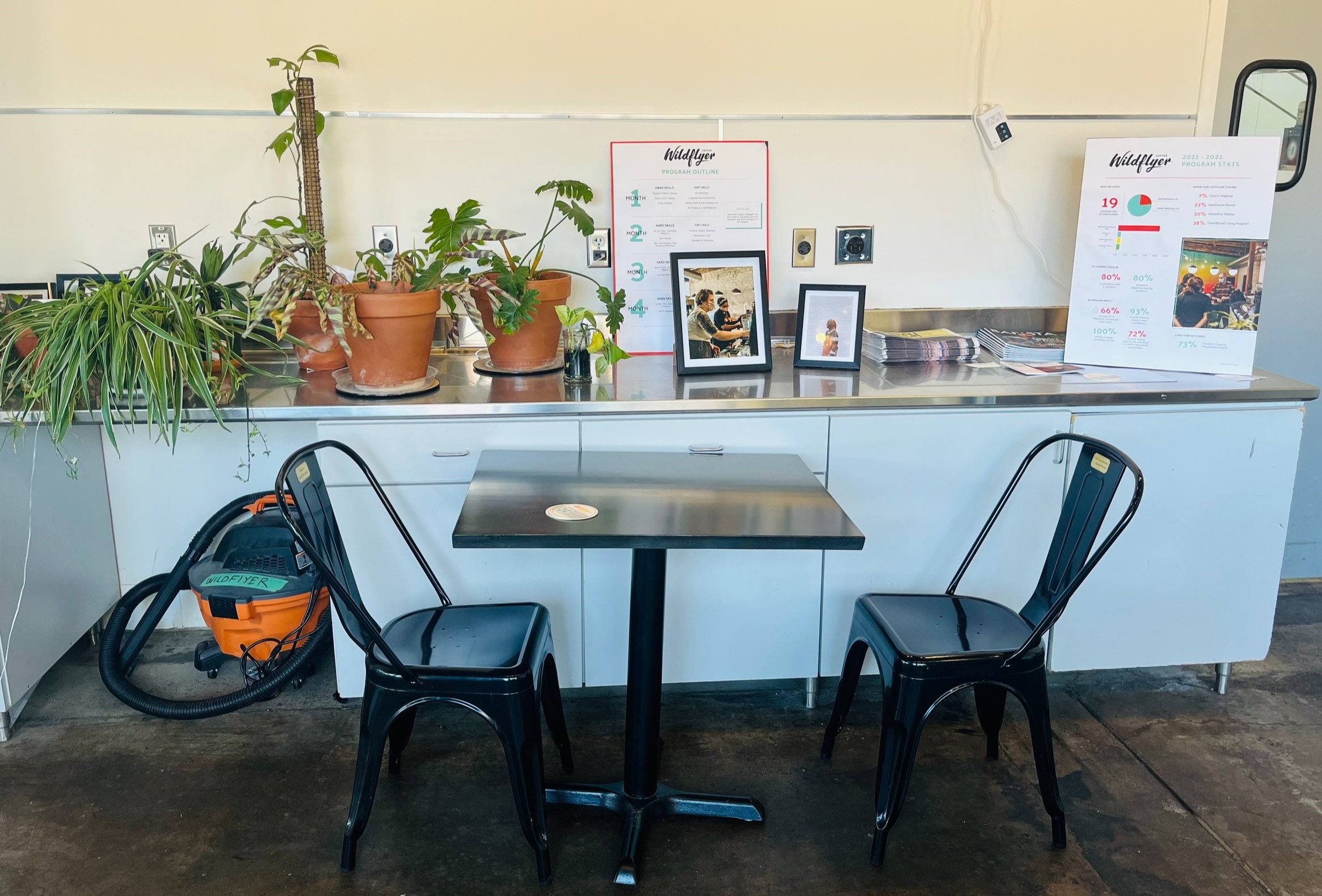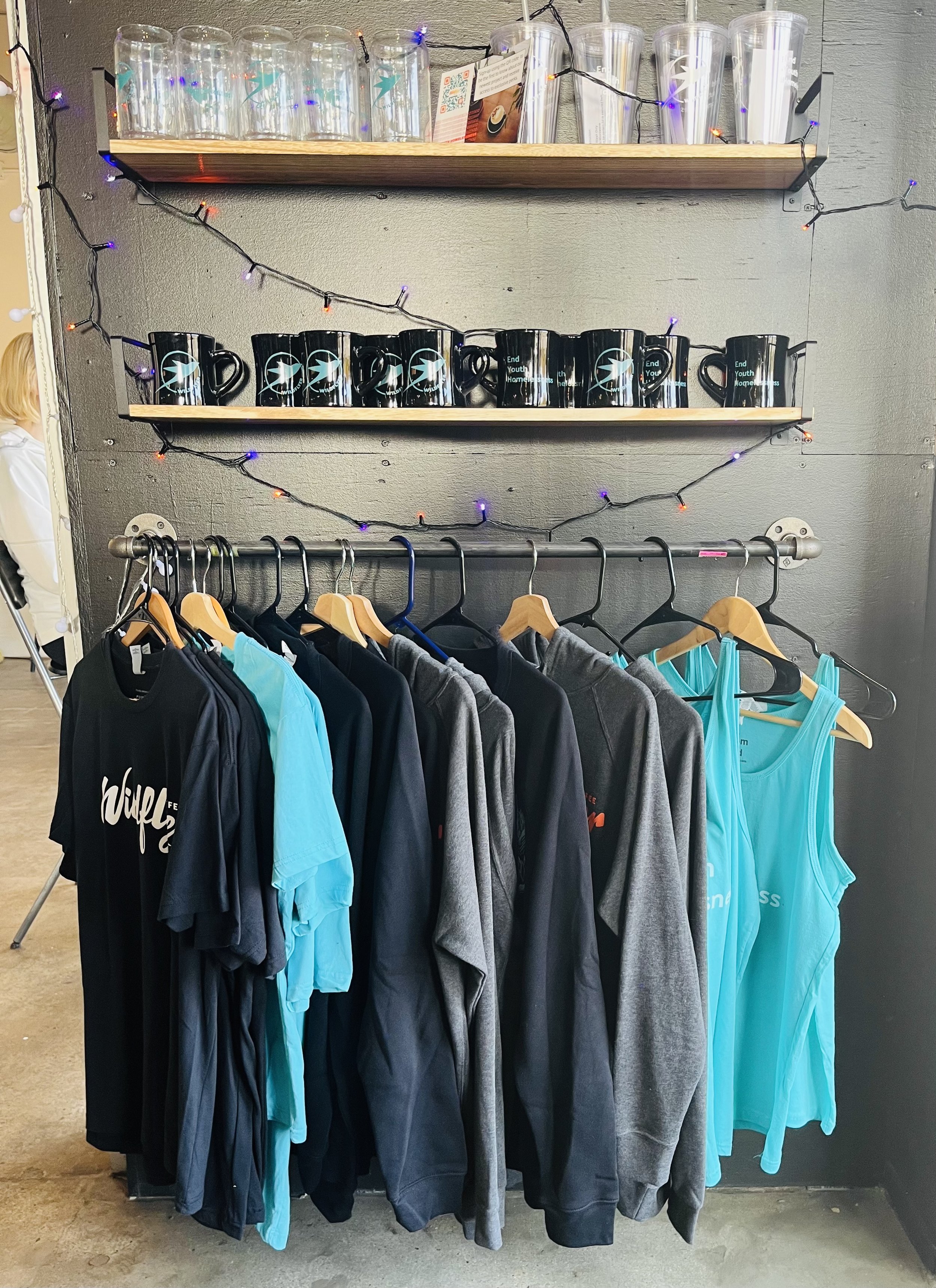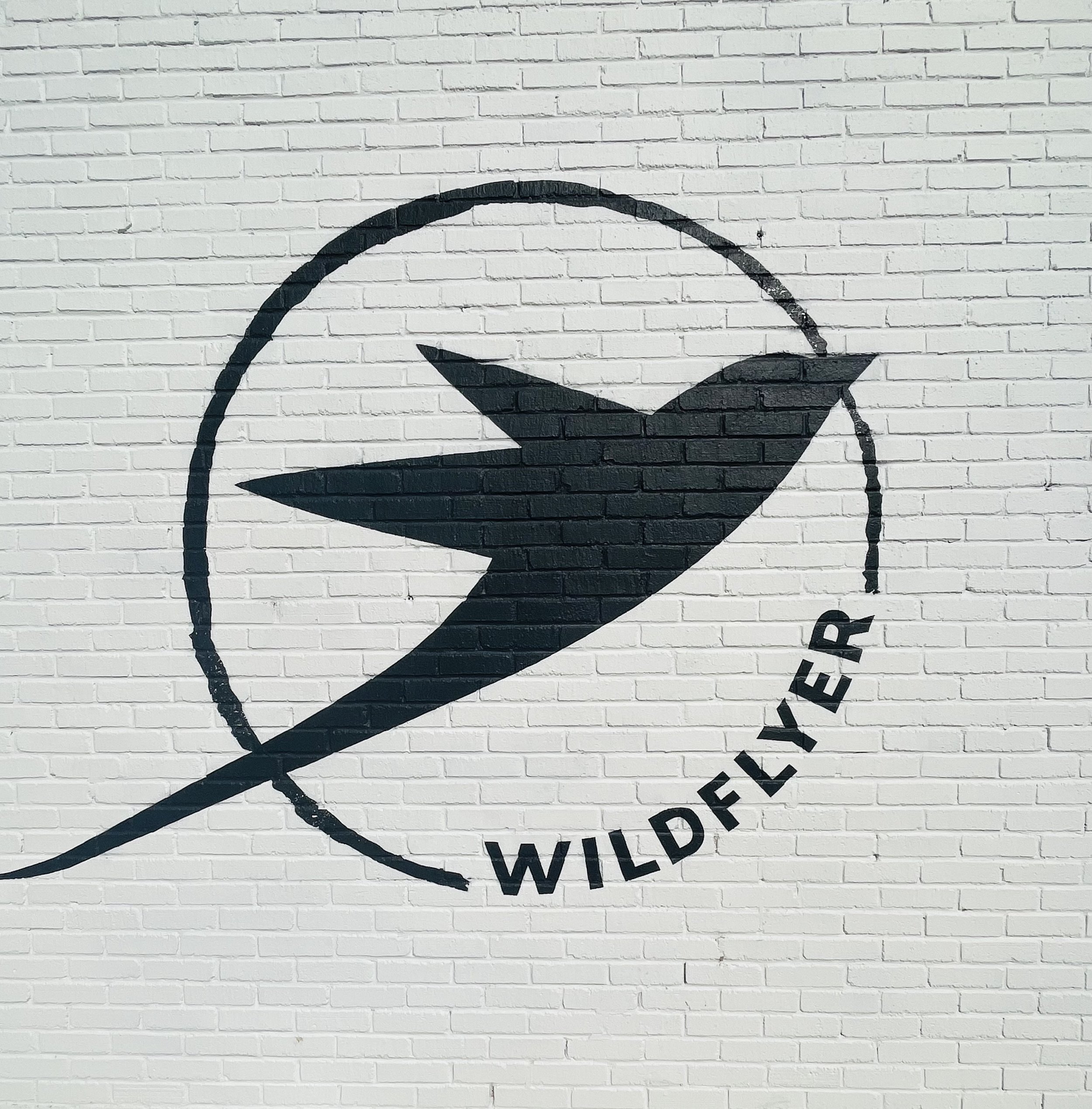A Mission-driven Coffee Shop
After learning of Wildflyer Coffee’s plan to expand their work in West St. Paul, I was excited to connect with someone from the organization to not only celebrate their accomplishments but also learn more about who they are and what they are doing. I was fortunate enough to connect directly with the co-founder and executive director, Carley Kammerer who was kind enough to accept my invitation for a chat.
In our time together, I quickly discovered Carley’s extensive background in working with youth experiencing homelessness. She’s been working with them for about 10 years in various capacities - she was a case manager, street outreach worker, and worked at a drop in center. Her experiences enabled her to see a gap in the services and resources that youth needed to successfully transition out of homelessness. She explains, “it kind of revolved around employment and independent living skills. I see a lot of people are doing housing work right now, and the basic needs, and so there wasn't a ton around that employment sustainability piece”. This led to the creation of what is now Wildflyer Coffee. Combining her experiences as a social worker and her background in coffee, along with the help of her business partner, they were able to start as a coffee cart in 2017 with the goal of “helping the youth learn to work and sustain their work and break through the barriers that keep them from employment, so that they would have a better chance of exiting long term”. In 2020, they were able to open their first retail location.
Having organizations, like Wildflyer Coffee, that are working to better equip youth that are navigating their way into housing is critical and needed at the moment. While housing and basic immediate needs are essential, soft skills and ongoing mental health resources are integral parts to successfully help those youths stay off the streets.
“We have to start asking how are we really helping move people out of those entry levels? Access points of help are important too, but what's the next step?”
Chair Plaque Inscription
“John and George’s chair in celebration of love”
If you visit Wildflyer Coffee, you will automatically notice the décor. From the murals, the coasters, the posters, to the personalized plaques on the chairs, you can see the intentionality behind their choices as they try to integrate their mission within the space. They act as a reminder that it isn’t just a place to get great coffee, but that people can and are helping to end youth homelessness by being there. Although there is always more that can be done. . .
If you haven’t guessed it yet, their logo and name are not just random. Carley was gracious enough to share about the behind the scenes story of how they came about.
“So a marketing and branding company downtown took on our project pro bono, which we are grateful for. They really helped us come up with, like, how do we try and capture our name? How do we see our youth? And how do we want people to see our youth? I think a lot of times people view those experiencing homelessness as sad and hopeless. A lot of labels imply that they're hopeless, but they aren’t like that. They're a person that's just in a situation. I really wanted to focus on the person and not their situation so much. So I think they kind of pulled from that and came up with this more positive, hopeful theme and the bird idea. While homelessness is a sad thing and it shouldn't exist, the people experiencing it do have vibrant lives”.
Carley also shared in great detail Wildflyer’s mission: “We are working to help youth be able to find and maintain employment when they leave our program - a four month program, and then we work to connect them once they leave. While they are in our program, they have a job, they can increase their wages and grow. They learn with us. We also want to be an example of advocacy for employment issues with the homeless population, as well as social enterprise being like a really viable model for nonprofits to consider. So we do the direct service work with youth, but also, because we're in a coffee shop, and that's like a community space where we advocate for the population we serve.”
Wildflyer Coffee’s Mission Statement
Part of their advocacy is their focus on using ‘people first language’ - they make a distinction between homeless youth and youth experiencing homelessness. Carley explains, “people first language is really important to us. We say a person experiencing homelessness instead of a homeless person because they are more than their housing situation. And it can be kind of, I think, demeaning and it's not really honoring that they are individual first”. I fully agree with her on that because putting the homeless first comes with a lot of negative images, stigmas, and attitudes. So switching it out does take the person out of their group they are labeled as, which can in turn help them be seen as individuals. But as we are so used to just using that language all the time, even us that are serving that population, we put that label first. This certainly highlights the need for us to be more aware of the negative perceptions we have towards that population and the need to work past them in order to support them.
When I asked about the intake process and how youths can connect with them, she explained that they were typically referred from a case manager or shelter representative. Once the referral is received, they conduct a few interviews similar to job interviews and then follow up with a needs assessment to gauge where they are at. Once accepted, they enter a cohort which starts every four months. They complete about 20 hours a week of barista work. They also participate in mental health workshops, financial literacy, housing 101 and customer service trainings.
She also shared a recent success story from the program:
“There is one of our youths I am really excited about, she started with us last year. At first, she wasn't doing well in the cohort. She was just not making her shifts. There was a lot going on in her personal life. She had been in a shelter and then I think left the shelter and it was a domestically abusive situation. She ended up not finishing her time with us and didn’t get in touch with our case manager. Then she came back to work for us and did another cohort earlier this year, and now she's just doing great. She's housed and pretty stable and she actually is getting hired on as a regular barista at the shop because she's just a great worker. I'm super happy to see how well she's doing. But I also think it's just like a good reminder of what success can look like. Sometimes you don't finish in a traditional way, you know, you don't go through the program the first time or it maybe would have been kind of a failed story last year, but she came back and she is doing really well. So I think that's just some of the behind the scenes work we do with the youth that’s really like meeting them where they're at. So I think that's just like one that really excites me”.
This highlights the reason why Wildflyer Coffee is needed in our community and with their current campaign, they will be able to double the number of youth they can employ and expand the resources and services they can provide in partnership with RS Eden. “We hope to be able to offer some barrier free mental health and chemical or substance use counseling, because that's kind of a big focus and use the shop to provide some low barrier services to the community”.
In closing, I asked what is one takeaway that she would want people to get from what Wildflyer is doing. She responded with, “This is a community. We are a community solution to a community problem. This is something that the community should address and these are our youths that are here amongst us. And hopefully Wildflyer can shed some light on that and emphasize the fact that youth homelessness exists. These youths tend to kind of blend in and look like everyone else. But they are juggling couch hopping, school, work and fees in a lot of areas and as a community, we should be concerned about that because these are our young people”.
To learn more about Wildflyer Coffee, visit their website: https://wildflyercoffee.com/





